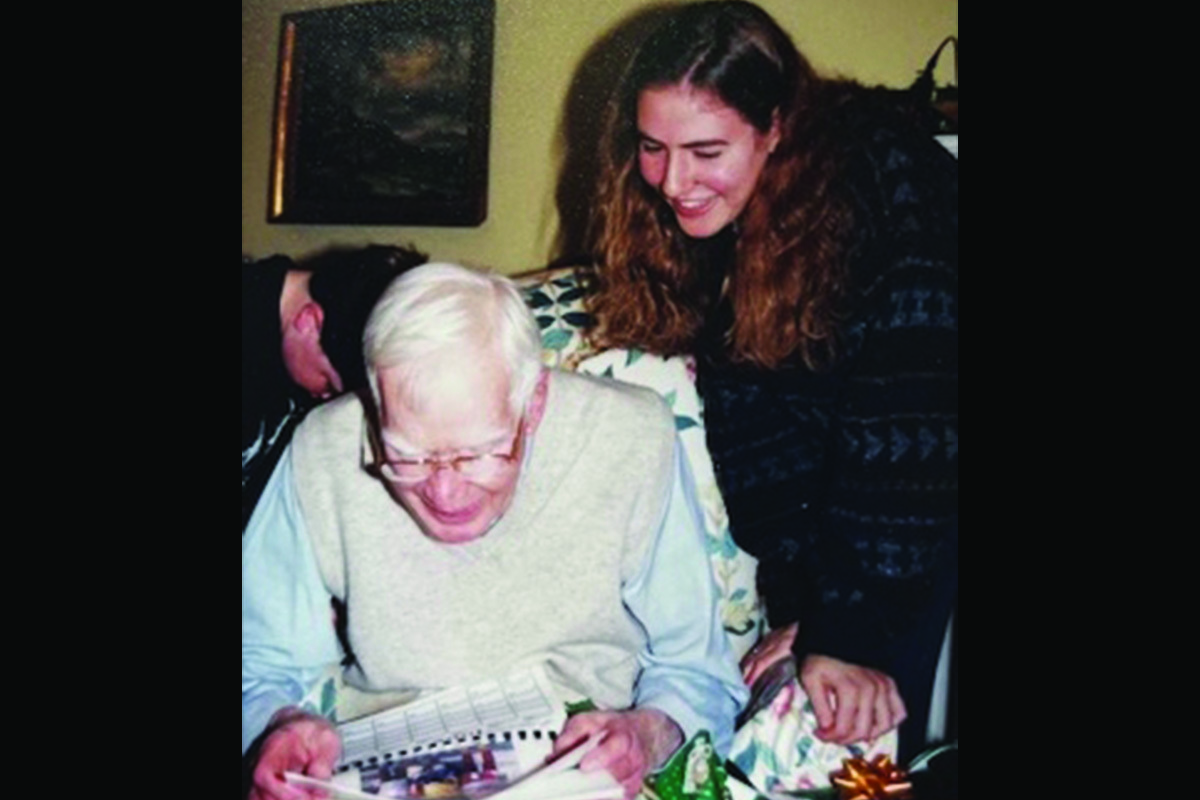You might say that Liz Zauber, MD, was destined to become a doctor. As a child of two parents in the medical field, she was immersed in the world of healthcare at a very young age. But there was an even more personal reason why Dr. Zauber pursued a career in medicine.
“My grandpa had Parkinson’s disease,” she said. “So that was always on my radar.”

Fast forward to today, and Dr. Zauber is helping patients just like her grandfather who struggle with Parkinson’s and other movement disorders. She is the chief of movement disorder at Indiana University Health Physicians—Neuroscience, as well as the director of the Parkinson’s Foundation Center of Excellence at the IU School of Medicine—the only such center in Indiana.
Her passion for understanding the complex intricacies of how the brain operates led her to patient care—but it was her passion for the patients themselves that led her to philanthropy. As the co-founder of the nonprofit Rock Steady Boxing, a gym and fitness program designed to help Parkinson’s patients lead more independent lives, Dr. Zauber understands the role giving plays in healthcare.
“It’s been really interesting,” she said, “to see the evolution of something that started from essentially nothing and then made an impact worldwide. It’s amazing.”
This introduction to the power of philanthropy has also led Dr. Zauber to begin training as a clinician champion for IU Health Foundation. Her hope is that she can work with her extended team to identify grateful patients and make them aware of the ways philanthropy supports the care they and other patients receive. Dr. Zauber also works alongside the Foundation as an advocate for philanthropy-funded art therapy services that are part of a holistic approach to Parkinson’s treatment.
On the clinical side, Dr. Zauber is an expert in deep brain stimulation—a surgical procedure where electrodes are implanted in certain areas of the brain to help regulate abnormal movements, such as tremors and rhythmic shaking. Post-surgery, most patients with movement disorders experience a significant reduction in physical symptoms and enjoy a higher quality of life.
“I can’t even begin to describe what a joyous feeling it is to know that you’ve changed a person’s life for the better,” Dr. Zauber reflected.
That generous spirit also has Dr. Zauber thinking about what philanthropy can do for her patients in the future.
“Hoosiers don’t like to toot their own horn,” she said. “But the reality is that we are doing really amazing things here in Indiana at IU Health. Our work in Parkinson’s has put us on the map—but through philanthropy, we can grow and expand our programming, and continue to make IU Health a place that’s known for excellent care for all patients experiencing any type of movement disorder.”
To support neuroscience care at IU Health and work being done by neurologists like Dr. Zauber, please contact IU Health Foundation Development Officer Jeffrey Roth, MA, CFRE.
